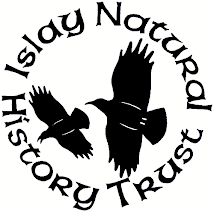FATS: The way to do it
With the ‘season of goodwill to all’ around the corner, Scottish Water is asking customers in Argyll & Bute to extend that feeling to our feathered friends.
Across the country Scottish Water is encouraging customers to dispose of cooking fats, oils and grease responsibly.
Over time cooking fats and oils poured down the sink or drain can cause sewer chokes, sewage discharges, pumping station failures and damage to the environment.
It is important that families dispose of cooking fats responsibly by putting it in a sealable plastic container first and then bagging and binning them with their household refuse. Animal fats and meat juices can actually harm our feathered friends and therefore such kitchen scraps should not be used to feed winter birds.
RSPB Scotland’s Louise Smith said:
“Using fat from roasting tins to feed to garden birds is a big no-no. The juices mixed in roasting tins will go off very quickly and could cause disease on bird tables. Birds are very susceptible to this during the colder months. Fat from meat juices could also damage birds’ feathers at a time when they need to be in tip top condition to stay warm. But don’t let this put you off feeding garden birds – there are loads of leftovers that are perfectly suitable.”
Scottish Water supports the RSPB’s campaign to encourage householders to leave out leftovers such as cake and biscuit crumbs, mild grated cheese, cooked rice, porridge oats, cooked potatoes and bruised fruit. However we are asking our customers not to leave out fats from roasting tins, frying pans or pots.
Such animal fats can smear onto birds’ feathers, reducing the insulation and water-proofing. High levels of salt can also be dangerous for our feathered-friends and the incorporated meat juices can quickly turn rancid providing a breeding ground for salmonella and other such food related bacteria.
Mrs Jane Mckenzie, Scottish Water’s Regional Community Manager for the area, added:
“While it is important that our customers do not pour fats, oils and grease down the kitchen sink or drain, it is also vital that they dispose of such residue responsibly, rather than leaving it out for winter birds.
“There is a misconception that sewers are vast, cavernous tunnels but in truth the majority are very narrow pipes, of no more than a few inches in diameter. It is very easy for these narrow pipelines to become blocked, causing waste water to back up and spill, spoiling the natural environment.”
Scottish Water has found that 55 per cent of all sewer blockages are caused by people disposing of cooking fat down their sink. It is an offence under the Sewerage (Scotland) Act 1968 to dispose of fat, grease or oil down a sink.
Fats, oil and grease in liquid form may not appear to be harmful but as it cools it congeals and hardens. This can then cause blockages to the inner lining of drainage pipes, which can lead to waste water flooding into gardens and properties, causing a health hazard to wildlife and the local environment. In extreme cases, blocked sewers can spill into burns, rivers, streams and beaches, causing environmental damage.
FATTY FACTS
Fat blockages cause pollution, flooding, public health hazards and have major clean up costs.
Saturated fat causes the most problems. This is animal fat which goes hard when it cools.
Mono-unsaturated fats such as olive oil and rapeseed solidify when refrigerated so can cause problems in sewers in cold weather
Scottish Water advises customers to allow fats, oils and grease to cool before disposing of it responsibly in a fat trap or by popping it into a sealable plastic container and then into the bin, to be disposed of along with the remainder of their household rubbish.
For more information on our ‘Fat Trap’ and ‘Bag It and Bin It’ campaigns visit
www.scottishwater.co.uk/fattrap.


















off white outlet
ReplyDeletebape clothing
off white outlet
supreme hoodie
jordan outlet
jordan outlet
off white nike
off white jordan
bape clothing
fear of god t shirt